In today’s digital age, learning languages has become more accessible than ever, thanks to a wide range of apps designed specifically for this purpose. But how do these apps compare to traditional learning with a language teacher?
Language apps are available anytime, anywhere. They offer free or low-cost plans, use a variety of resources, and can adapt to different learning styles. Plus, users have full control over their learning process, making them independent learners.
Why Isn’t This Enough?
While convenient, apps lack the most critical component of language learning: human interaction. The fundamental goal of learning a language is communication with others, which requires real-life experiences and interactions. Even though some apps feature voice recognition, they can’t replicate the experience of real-time conversations, limiting the quality of personalized feedback.
Teachers provide immediate feedback and can adjust lessons based on individual student needs, ensuring a more effective and tailored learning experience. They also allow students to practice speaking regularly, receive direct corrections on pronunciation and intonation, and offer motivation and long-term commitment to language learning.
The Best of Both Worlds
Both language apps and learning with teachers have their advantages and disadvantages. The choice between them depends on the personal preferences of each student, learning style, goals, and available resources. However, combining both methods can be the most effective strategy for achieving full language mastery.
Español Millennium offers a perfect blend of technology and human interaction. With native Spanish tutors and online classes designed for personalized learning, students can experience the best of both worlds, ensuring language fluency in real-life situations.


